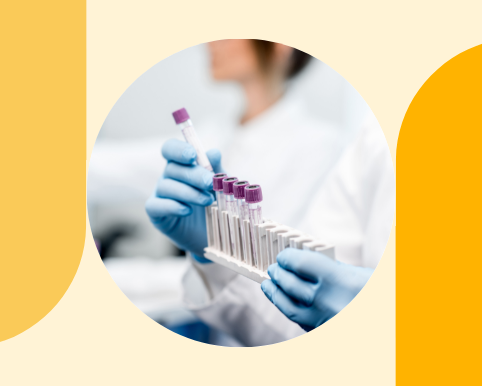What is the Genomics England Research Network?
By Research Management team onThe Genomics England Research Network is a global community of researchers with access to our Research Environment.
This secure workspace provides a place for them to carry out research on de-identified datasets in the National Genomic Research Library (NGRL), to gain new insights about genomics and our health.
The aim is to enable scientific discovery, and to accelerate how it is translated into patient care.
How has the Research Network changed?
In September 2023, our Research Network took on a new, streamlined structure, consisting of 8 cross-functional communities.
This structure has allowed us to provide more support for each of the communities, and to proactively help them in addressing any challenges.
We are continuing to build bridges between the Research Network and teams within Genomics England, as well as with industry partners. This increased collaboration will help us to keep up to date with ongoing research, and for research communities to stay informed about the Research Environment.
The communities in our network
The 8 cross-cutting communities that make up our Research Network are:
Bioinformatics and Machine Learning community
Lead: Chris Yau
Co-Lead: David Morris
This community provides algorithms and tools to find important and meaningful patterns in genomic, clinical or other types of data.
They will focus on developing, refining and applying bioinformatics approaches to research that uses data from the NGRL, and will openly share computational methods and ideas, including powerful approaches like machine learning.
The community will also work with disease groups to provide access to world-leading expertise in computational data analysis, and provide training to support a world-leading workforce in genomic-based healthcare.
Genotype-Phenotype Association community
Lead: Diana Baralle
Co-Lead: Gavin Arno
Genotype-phenotype association studies aim to find links between specific genes and specific conditions. By analysing the large-scale data in the NGRL, this community aims to discover and characterise rare gene variants that are correlated with a certain trait or condition.
These studies will improve our understanding of the causes of disease traits, identify potential new biological pathways, and help to determine clinical risks. All of which could be applied directly in the clinic through screening and treatment strategies.
The research from this community will pay particular attention to analysing ancestries under-represented in genomics research, by implementing and improving tools used for this analysis.
Implementation and Data Enhancement community
Lead: AJ McKnight
Co-Lead: TBC
The NHS is the first national healthcare system to offer whole genome sequencing as part of routine care. This presents an enormous opportunity to improve treatment and genomic research, but also creates practical challenges around applying genomic medicine to the national healthcare system.
Research in this community will explore the social, economic, legal, and ethical effectiveness of genomic medicine in the NHS, as well as work to improve data quality and availability.
Pan-cancer and Molecular Oncology community
Lead: Richard Houlston
Co-Lead: Anna Schuh
This community will carry out research across all tumour and germline samples present in the NGRL.
Many tumours show similar genetic alterations that disrupt common biological processes. By knowing more about these similarities and differences between tumour types, we may better understand the origins of cancers, identify markers that are relevant in the clinic, and predict how the cancer will respond to therapy.
This community will use data in the NGRL to identify and investigate which genetic alterations are driving different tumour types, aiming to find functional changes or impaired biological mechanisms that are common to many cancers.
This will help to establish whether there are common genetic alterations that affect how a cancer responds to treatment.
Population Genomics community
Lead: Aylwyn Scally
Co-Lead: Jean-Baptiste Cazier
The Population Genomics community includes researchers studying genomic variation in population-scale cohorts from the NGRL. It promotes research and collaboration around developing new methods, tools and resources, using data both within the NGRL and external datasets.
The community aims to improve our understanding of human genetic variation and the processes that shape it, as well as understanding how genomics relates to health in the population. This will help to inform diagnosis, treatment and the impact of interventions.
Predisposition and Screening community
Lead: Elijah Behr
Co-Lead: Sanjay Sisodiya
Genome sequencing provides a powerful tool to identify individuals at higher risk of developing a condition. This supports an accurate and early diagnosis as well as personalised treatment, both of which can significantly improve the prognosis and life quality of a patient.
The Predisposition and Screening community will analyse genomic data from families and individuals in the NGRL, including participants of the Generation Study and Diverse Data initiative. Their research aims to identify variants that cause or predispose disease in diverse ancestries.
Therapeutic Innovation and Trials community
Lead: Danny Gale
Co-Lead: Haiyan Zhou
Genomics offers great opportunities for improved prediction, prevention, diagnosis and targeted treatment of conditions. Translating important genomic discoveries into patient benefit is a primary goal of the Research Network.
The Therapeutic Innovation and Trials Community will support the application of genomic and clinical insights into the development and use of new therapies.
Variant Discovery and Clinical Interpretation community
Lead: Sophie Hambleton
Co-Lead: Caroline Wright
There are over 7000 recognised rare conditions. Individually they are rare, but collectively they impact 1 in every 17 people.
This community will strive to provide genetic diagnoses for participants with rare conditions by identifying or validating gene variants that explain previously undiagnosed cases, and feed these back into clinical practice.
The typical diagnostic journey for someone with a rare condition spans 8 years and requires numerous medical assessments, resulting in a delay of optimal treatment. This community will use new tools and data to tackle these challenges and improve our ability to rapidly and reliably identify genetic causes.
Find more information about the community leads on our webpage.
Our Research Vision
Our Research Vision is to bring the benefits of genomic research to everyone.
The new structure of our Research Network allows us to engage more with those working on data in the NGRL, and for them to work more closely with each other.
This increased collaboration, support, and sharing of ideas is helping us as a community to continue informing science, diagnostics, innovative therapies, and clinical pathways, all in line with the aims of our vision.
How can researchers join the network?
As of 14 February 2024, researchers have been able to join the communities in our network.
Researchers wishing to join and gain access to data in the NGRL can apply via the standard process on our webpage.
If you are unsure which community to join, you can find example researcher profiles and how they align with the communities.
And finally…
Save the date! 9 July 2024 will be the annual Genomics England Research Summit.
You can also find out more about our Research Vision and how we will continue working with our communities to bring the benefits of genomic healthcare to everyone.


